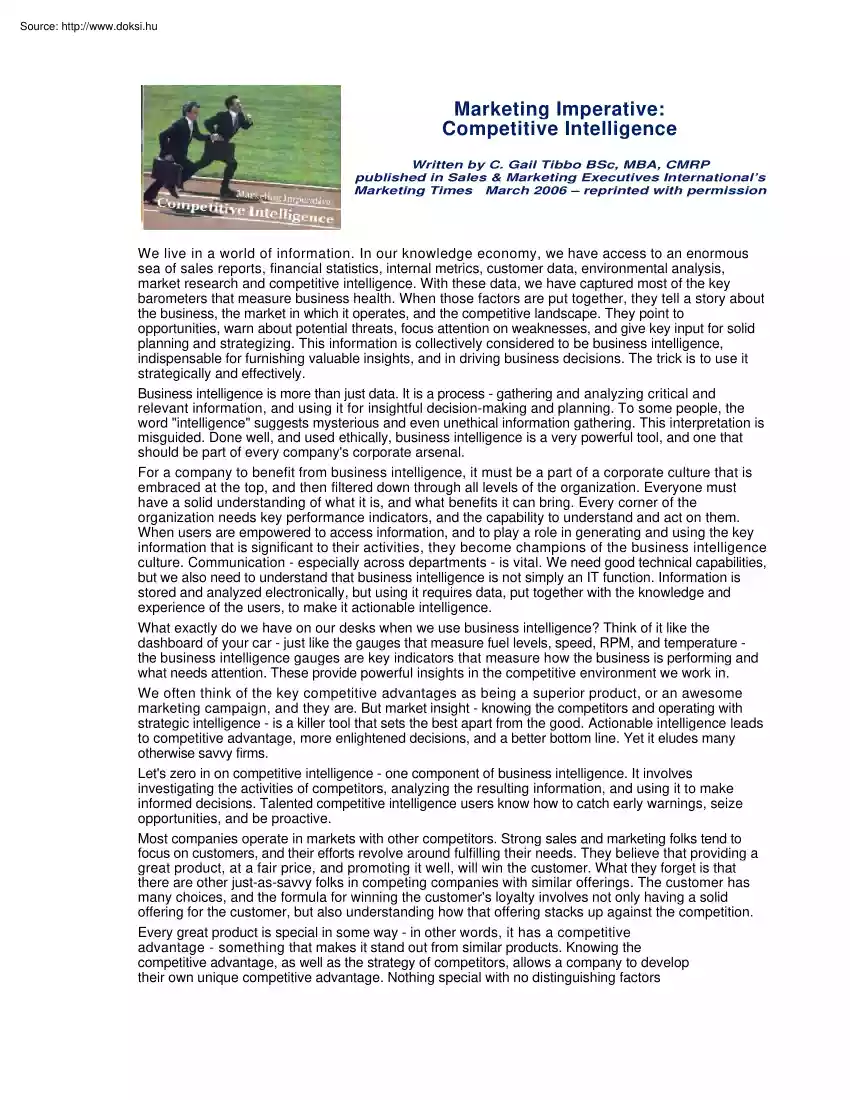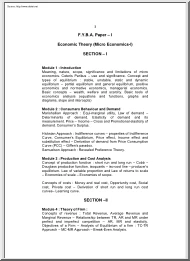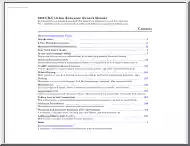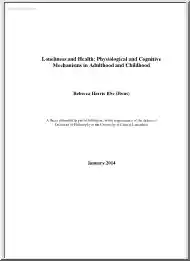Értékelések
Nincs még értékelés. Legyél Te az első!
Mit olvastak a többiek, ha ezzel végeztek?
Tartalmi kivonat
Marketing Imperative: Competitive Intelligence Written by C. Gail Tibbo BSc, MBA, CMRP published in Sales & Marketing Executives International’s Marketing Times March 2006 – reprinted with permission We live in a world of information. In our knowledge economy, we have access to an enormous sea of sales reports, financial statistics, internal metrics, customer data, environmental analysis, market research and competitive intelligence. With these data, we have captured most of the key barometers that measure business health. When those factors are put together, they tell a story about the business, the market in which it operates, and the competitive landscape. They point to opportunities, warn about potential threats, focus attention on weaknesses, and give key input for solid planning and strategizing. This information is collectively considered to be business intelligence, indispensable for furnishing valuable insights, and in driving business decisions. The trick is to use
it strategically and effectively. Business intelligence is more than just data. It is a process - gathering and analyzing critical and relevant information, and using it for insightful decision-making and planning. To some people, the word "intelligence" suggests mysterious and even unethical information gathering. This interpretation is misguided. Done well, and used ethically, business intelligence is a very powerful tool, and one that should be part of every companys corporate arsenal. For a company to benefit from business intelligence, it must be a part of a corporate culture that is embraced at the top, and then filtered down through all levels of the organization. Everyone must have a solid understanding of what it is, and what benefits it can bring. Every corner of the organization needs key performance indicators, and the capability to understand and act on them. When users are empowered to access information, and to play a role in generating and using the key
information that is significant to their activities, they become champions of the business intelligence culture. Communication - especially across departments - is vital We need good technical capabilities, but we also need to understand that business intelligence is not simply an IT function. Information is stored and analyzed electronically, but using it requires data, put together with the knowledge and experience of the users, to make it actionable intelligence. What exactly do we have on our desks when we use business intelligence? Think of it like the dashboard of your car - just like the gauges that measure fuel levels, speed, RPM, and temperature the business intelligence gauges are key indicators that measure how the business is performing and what needs attention. These provide powerful insights in the competitive environment we work in We often think of the key competitive advantages as being a superior product, or an awesome marketing campaign, and they are. But market
insight - knowing the competitors and operating with strategic intelligence - is a killer tool that sets the best apart from the good. Actionable intelligence leads to competitive advantage, more enlightened decisions, and a better bottom line. Yet it eludes many otherwise savvy firms. Lets zero in on competitive intelligence - one component of business intelligence. It involves investigating the activities of competitors, analyzing the resulting information, and using it to make informed decisions. Talented competitive intelligence users know how to catch early warnings, seize opportunities, and be proactive. Most companies operate in markets with other competitors. Strong sales and marketing folks tend to focus on customers, and their efforts revolve around fulfilling their needs. They believe that providing a great product, at a fair price, and promoting it well, will win the customer. What they forget is that there are other just-as-savvy folks in competing companies with similar
offerings. The customer has many choices, and the formula for winning the customers loyalty involves not only having a solid offering for the customer, but also understanding how that offering stacks up against the competition. Every great product is special in some way - in other words, it has a competitive advantage - something that makes it stand out from similar products. Knowing the competitive advantage, as well as the strategy of competitors, allows a company to develop their own unique competitive advantage. Nothing special with no distinguishing factors equals a me-too product, which customers do not have a good reason to purchase, especially if they already have a relationship with your competitors. Intelligence is not information, although it starts with information. This is a key concept in the world of Cl. Generating a large collection of data is simple - filtering it to uncover useful and meaningful nuggets is a talent. And after the filtering is done, and a
collection of solid information results, it must be turned into intelligence. Developing information into intelligence requires the addition of experience and knowledge of the marketer. For example, information may reveal that the competitor is launching a new product. This could cause the company to explore new product opportunities, or to lower prices to compete. But when the information becomes intelligence, it may then reveal that the competitors new product is inferior in design, but priced lower, so company promotions should focus on product superiority, quality and value. Heres the difference: information tells us what the competitor situation is; intelligence adds the implications and suggests a direction to take - infinitely more useful, strategic and actionable. Competitive intelligence is a must, for large and small companies alike. It provides solid inputs for new product development, promotional strategies, and marketing plans. Having a broad perspective on competitors
plans and strategies is key to carving out a viable market niche. And it is not new - the major global brands have been studying their competition for decades. Calling it competitive intelligence, and organizing it as a business function, is a recent development. Youll find chief knowledge officers in many progressive companies that embrace business intelligence/competitive intelligence. There are very sophisticated tools and techniques used in the overall intelligence arena, and a combination of information, analysis and insight makes it happen. However, competitive intelligence can be undertaken simply and beneficially, without this degree of sophistication. Monitoring prices and promotions, attending trade shows, and scanning the business press are a good start, and easily implemented. Information ages, so a constant and planned process is essential, with trends tracked over time. In todays highly competitive global marketplace, firms need to leverage every asset to their advantage.
Competitive intelligence is a key strategic asset With dynamic intelligence front and center on our desks, we are positioned to take our organizations to new levels of success
it strategically and effectively. Business intelligence is more than just data. It is a process - gathering and analyzing critical and relevant information, and using it for insightful decision-making and planning. To some people, the word "intelligence" suggests mysterious and even unethical information gathering. This interpretation is misguided. Done well, and used ethically, business intelligence is a very powerful tool, and one that should be part of every companys corporate arsenal. For a company to benefit from business intelligence, it must be a part of a corporate culture that is embraced at the top, and then filtered down through all levels of the organization. Everyone must have a solid understanding of what it is, and what benefits it can bring. Every corner of the organization needs key performance indicators, and the capability to understand and act on them. When users are empowered to access information, and to play a role in generating and using the key
information that is significant to their activities, they become champions of the business intelligence culture. Communication - especially across departments - is vital We need good technical capabilities, but we also need to understand that business intelligence is not simply an IT function. Information is stored and analyzed electronically, but using it requires data, put together with the knowledge and experience of the users, to make it actionable intelligence. What exactly do we have on our desks when we use business intelligence? Think of it like the dashboard of your car - just like the gauges that measure fuel levels, speed, RPM, and temperature the business intelligence gauges are key indicators that measure how the business is performing and what needs attention. These provide powerful insights in the competitive environment we work in We often think of the key competitive advantages as being a superior product, or an awesome marketing campaign, and they are. But market
insight - knowing the competitors and operating with strategic intelligence - is a killer tool that sets the best apart from the good. Actionable intelligence leads to competitive advantage, more enlightened decisions, and a better bottom line. Yet it eludes many otherwise savvy firms. Lets zero in on competitive intelligence - one component of business intelligence. It involves investigating the activities of competitors, analyzing the resulting information, and using it to make informed decisions. Talented competitive intelligence users know how to catch early warnings, seize opportunities, and be proactive. Most companies operate in markets with other competitors. Strong sales and marketing folks tend to focus on customers, and their efforts revolve around fulfilling their needs. They believe that providing a great product, at a fair price, and promoting it well, will win the customer. What they forget is that there are other just-as-savvy folks in competing companies with similar
offerings. The customer has many choices, and the formula for winning the customers loyalty involves not only having a solid offering for the customer, but also understanding how that offering stacks up against the competition. Every great product is special in some way - in other words, it has a competitive advantage - something that makes it stand out from similar products. Knowing the competitive advantage, as well as the strategy of competitors, allows a company to develop their own unique competitive advantage. Nothing special with no distinguishing factors equals a me-too product, which customers do not have a good reason to purchase, especially if they already have a relationship with your competitors. Intelligence is not information, although it starts with information. This is a key concept in the world of Cl. Generating a large collection of data is simple - filtering it to uncover useful and meaningful nuggets is a talent. And after the filtering is done, and a
collection of solid information results, it must be turned into intelligence. Developing information into intelligence requires the addition of experience and knowledge of the marketer. For example, information may reveal that the competitor is launching a new product. This could cause the company to explore new product opportunities, or to lower prices to compete. But when the information becomes intelligence, it may then reveal that the competitors new product is inferior in design, but priced lower, so company promotions should focus on product superiority, quality and value. Heres the difference: information tells us what the competitor situation is; intelligence adds the implications and suggests a direction to take - infinitely more useful, strategic and actionable. Competitive intelligence is a must, for large and small companies alike. It provides solid inputs for new product development, promotional strategies, and marketing plans. Having a broad perspective on competitors
plans and strategies is key to carving out a viable market niche. And it is not new - the major global brands have been studying their competition for decades. Calling it competitive intelligence, and organizing it as a business function, is a recent development. Youll find chief knowledge officers in many progressive companies that embrace business intelligence/competitive intelligence. There are very sophisticated tools and techniques used in the overall intelligence arena, and a combination of information, analysis and insight makes it happen. However, competitive intelligence can be undertaken simply and beneficially, without this degree of sophistication. Monitoring prices and promotions, attending trade shows, and scanning the business press are a good start, and easily implemented. Information ages, so a constant and planned process is essential, with trends tracked over time. In todays highly competitive global marketplace, firms need to leverage every asset to their advantage.
Competitive intelligence is a key strategic asset With dynamic intelligence front and center on our desks, we are positioned to take our organizations to new levels of success





